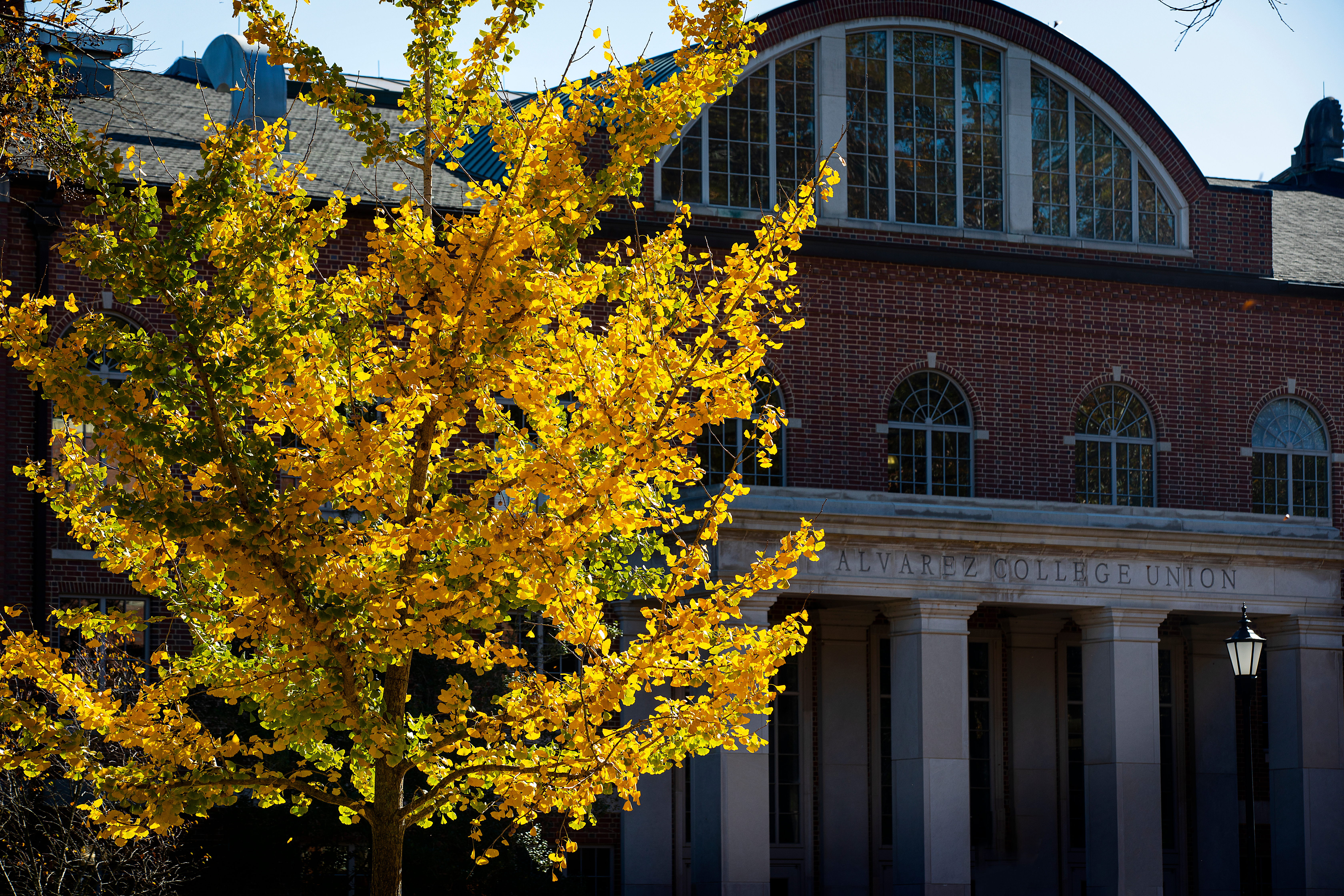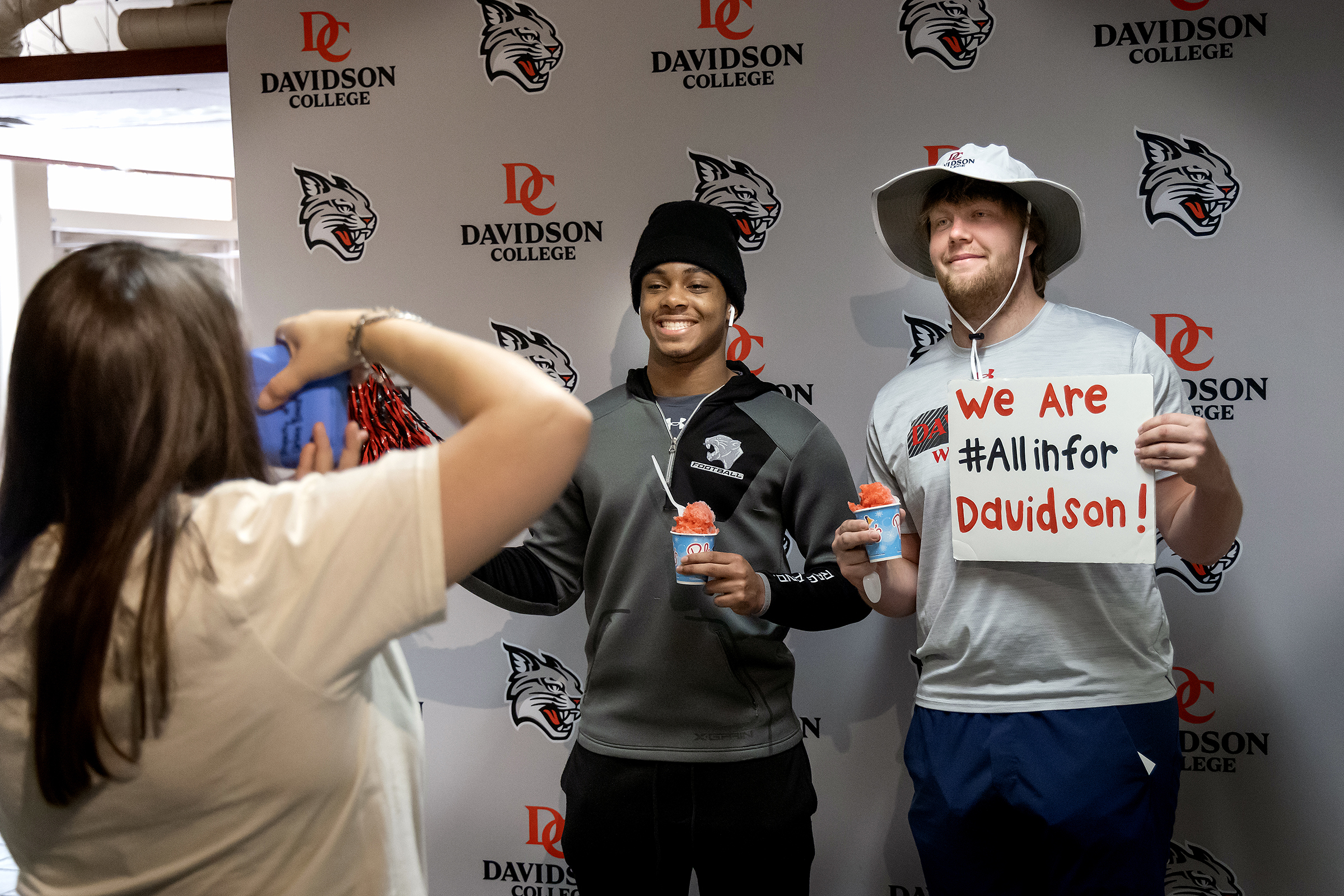Kevin Bell ’05 Finds the Dirty Money in U.S. Real Estate
January 27, 2017
Kevin Bell's winding career path has taken him from a war zone to the halls of the U.S. Treasury Department.
As a platoon leader with the U.S. Army 101st Airborne Division in Afghanistan, the 2005 graduate helped to design and build a brand new base; served as a detective, intelligence analyst and linguistics expert; and put the best U.S. face forward as ambassador and spokesperson.
He recounted some of his two tours of duty to fellow alumni at his fifth-year reunion weekend in a talk, titled "Pulling Teeth: A Platoon Leader's Perspective After a Year in Afghanistan."
Halfway across the world, Bell's liberal arts perspective came in handy.
"If you're some close-minded, ungenerous human being, you wouldn't do well [in Afghanistan]," he said with characteristic frankness. "Davidson makes a serious attempt to teach people how to think, how to analyze."
He loved that part. One of Bell's professors recalled his former student as "intellectually omnivorous"–for poetry and language and science and dance and political philosophy, among other subjects.
After his military service, Bell completed Princeton's Near Eastern Studies Program and returned to Afghanistan as a consultant with a small company on a strategic communications grant from the U.S. State Department. For kicks (literally) he taught salsa lessons in his spare time. He stayed in Afghanistan until the situation deteriorated beyond a point of danger.
"Frankly, it was terrible for a first decade [out of college] in some ways, but it makes for good cocktail party stories," he said. "If I went to cocktail parties."
Following the Money
Bell's career took a new turn when he went to work for the agency that combats domestic and international money laundering and terrorist financing, among other financial crimes.
After completing the Presidential Management Fellowship program, he joined the U.S. Treasury Department in 2015 as a research enforcement specialist for the Financial Crimes Enforcement Network (FinCEN) Office of Special Measures. He was immediately handed a large portfolio of luxury real estate transactions, often built on layers and layers of shell companies and other potentially suspect arcana.
"I was new and they needed somebody who didn't have other things to do," he deadpans in a phone interview conducted from outside his Washington, D.C. office, where cell phones are not allowed. "It took months of reading to understand the industry, and to think creatively about it."
In Bell's first six months at FinCEN, more than a quarter of the luxury real estate transactions the group analyzed involved at least one person who was on file with the feds as a bad actor, often a foreign national. Not long after, FinCEN expanded their analysis beyond just Miami and Manhattan to regions across the nation.
Bell details the challenges before FinCEN, and the effects of illegal activity in the market on consumers and businesses, in an article, titled "Lifestyles of the Rich and Infamous: Confronting Dirty Money in U.S. Real Estate" (Harvard International Review, Summer 2016). He writes:
Drug traffickers and fraudsters do not simply want to hide their dirty cash. They also want to conceal the origins of their funds in a way that grows as an investment, cleans as much money as possible in a single transaction, and allows them to enjoy the fruits of their illicit activity without worrying about market instability and exchange rates causing future losses. In that sense, real property–especially residential property in desirable cities in a relatively stable market like the United States–is a natural choice.
"The problem is one that all rich countries are having to grapple with. We have valuable stocks and strong financial systems. That's where the money is going to gravitate to," Bell said. "So, how do you keep bad guys out? That's a much bigger question than I can answer. My job is to look at what we can do to better understand the problem."
Again, Bell traces that intellectual creativity to his education.
"If you don't have a very broad foundation, it's going to be hard to come in to a job, like I did, where you don't have expertise in the specific skillset," said Bell, who majored in Spanish. "My academic life at Davidson was 'ecumenical.' I took classes in physics, math, history, Russian, Spanish, anything I could get my hands on."
Bell is looking ahead now to law school, a decision that brings him full circle: He took the LSAT at Davidson, but found he couldn't answer for himself the question of why, exactly, he wanted to go to law school then. So he didn't.
Now he knows.
"Looking through all of those real estate files, I realized that there are 100 different things you need to understand to achieve clarity–legal liability, definitions... There's a reason they hire lawyers," he said. "I love this work, I have a real passion for it, and if I want to keep doing this, law school will help me in my career."
Whatever the next decade holds, it's fairly certain Bell will rack up a few more cocktail party-worthy tales along his way.
Related Links
Read about Bell's work at FinCEN in the New York Times article, "U.S. Will Track Secret Buyers of Luxury Real Estate."
Read Bell's articles about his experiences in Afghanistan in the CTC Sentinel magazine of the Combating Terrorism Center at West Point, "The First Islamic State: A Look Back at the Islamic Emirate of Kunar."
Read Bell's Huffington Post article, "The Invention of Joggling, the Goofiest Sport in History." In his spare time at Davidson, Bell learned "joggling" (jogging and juggling together), from campus photographer Bill Giduz '74, who invented the sport.
John Syme
josyme@davidson.edu
704-894-2523



